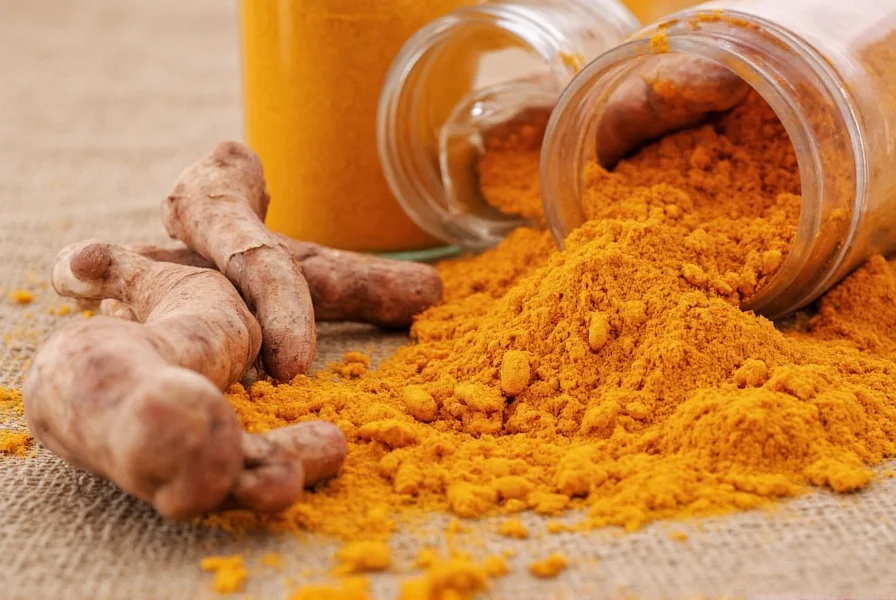Curcumin, the primary bioactive compound in turmeric supplements, has captured significant scientific interest for its potential health benefits. While traditional culinary use of turmeric dates back thousands of years, modern supplement formulations aim to overcome the natural limitations of this golden spice. Research indicates that standardized curcumin extracts with enhanced bioavailability may provide measurable health benefits, though results vary based on formulation quality and individual factors.
The Science Behind Turmeric Supplements
Turmeric (Curcuma longa) contains approximately 2-8% curcuminoids by weight, with curcumin being the most studied compound. Pure curcumin has notoriously poor bioavailability—when consumed alone, less than 1% enters the bloodstream. This explains why natural turmeric powder in cooking provides minimal therapeutic benefit compared to specialized supplement formulations.
Modern bioavailable turmeric supplements address this limitation through several approaches:
| Formulation Type | Mechanism | Absorption Improvement |
|---|---|---|
| Piperine combination | Inhibits liver metabolism | Up to 2000% |
| Liposomal delivery | Encapsulates curcumin in fat spheres | Up to 65x |
| Phospholipid complexes | Binds to phospholipids for better absorption | 29x |
| Nanoparticle formulations | Reduces particle size for better uptake | 10-50x |
Evidence-Based Health Benefits
Multiple clinical studies support specific applications of high-quality curcumin supplements for inflammation. A 2022 meta-analysis published in Nutrients reviewed 22 randomized controlled trials and found significant reductions in inflammatory markers like CRP and IL-6 among participants taking bioavailable curcumin formulations.
Research on turmeric supplements for joint health shows promising results. In a 12-week study comparing 1,500mg daily of curcumin to standard NSAID treatment for osteoarthritis, both groups experienced similar pain reduction, but the curcumin group reported fewer gastrointestinal side effects.
Emerging evidence suggests potential cognitive benefits from curcumin supplements for brain health. A double-blind trial with 40 adults aged 50-90 found that 90mg of a specialized curcumin formulation taken twice daily improved memory and attention over 18 months compared to placebo.
Important Limitations and Safety Considerations
Despite promising research, several important limitations exist. Most studies use highly concentrated, bioavailable curcumin extracts—not standard turmeric powder. The optimal dosage of turmeric supplements varies significantly based on formulation, with effective doses ranging from 80mg to 1,500mg of standardized curcumin daily.
Safety concerns include:
- Potential interactions with blood thinners and diabetes medications
- Gastrointestinal discomfort at high doses
- Contraindicated for individuals with gallbladder issues
- Limited safety data for long-term use beyond 12 months
The FDA does not regulate turmeric supplements as strictly as pharmaceuticals, leading to significant quality variations between brands. Third-party testing reveals that up to 30% of supplements contain less curcumin than labeled or include undisclosed additives.
Choosing Quality Turmeric Supplements
When selecting high-quality turmeric supplements, look for these critical features:
- Standardized curcumin content (typically 95% curcuminoids)
- Bioavailability enhancement (piperine, liposomal, or phospholipid technology)
- Third-party testing verification (USP, NSF, or ConsumerLab certification)
- Transparent ingredient listing with no unnecessary fillers
- Manufacturing compliance with current Good Manufacturing Practices (cGMP)
Avoid products making exaggerated health claims or promising miraculous results. Reputable turmeric supplement brands for arthritis typically provide research references and transparent dosing information rather than relying on testimonials.
Realistic Expectations for Turmeric Supplement Benefits
Manage expectations regarding how long turmeric supplements take to work. Most clinical trials showing benefits required 8-12 weeks of consistent use. Unlike pharmaceutical drugs that often produce immediate effects, natural supplements typically work gradually through cumulative physiological changes.
Consider turmeric supplements versus dietary turmeric—you would need to consume approximately 15 teaspoons of standard turmeric powder daily to match the curcumin content of a single 500mg standardized supplement. This impractical amount explains why supplements remain the preferred method for therapeutic applications.
Professional Guidance Recommendations
Before incorporating turmeric supplements into your wellness routine, consult with your healthcare provider, especially if you:
- Take anticoagulant medications
- Have diabetes or take blood sugar medications
- Have gallbladder disease or kidney stones
- Are pregnant or breastfeeding
- Are scheduled for surgery within the next two weeks
Healthcare professionals can help determine appropriate dosing for turmeric supplements based on your specific health profile and potential medication interactions. They may also recommend periodic blood tests to monitor effects, particularly when using high-dose formulations.
Conclusion: A Balanced Perspective
Turmeric supplements represent a promising complementary approach for certain health concerns, particularly inflammation-related conditions. However, they're not miracle cures and work best as part of a comprehensive wellness strategy that includes proper nutrition, regular exercise, and appropriate medical care. The most effective bioavailable turmeric supplements combine scientific formulation with quality manufacturing standards, but individual responses vary significantly. Always prioritize evidence-based information over marketing claims when evaluating these products.











 浙公网安备
33010002000092号
浙公网安备
33010002000092号 浙B2-20120091-4
浙B2-20120091-4